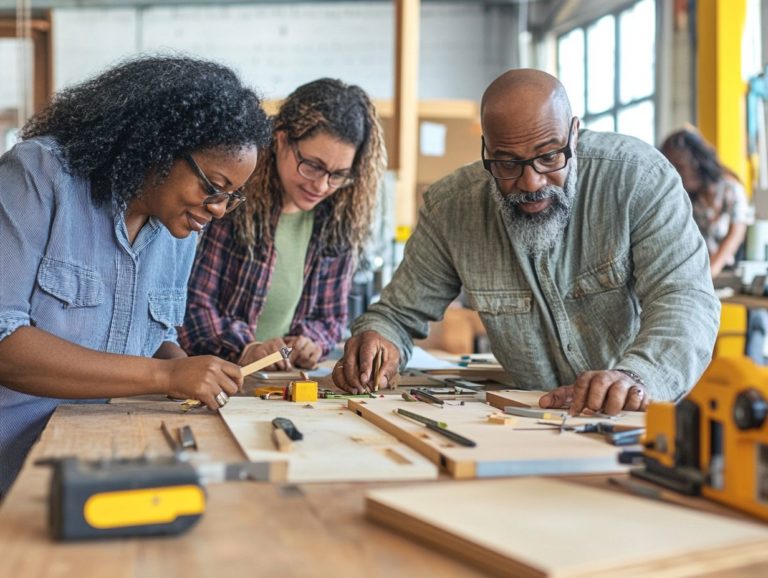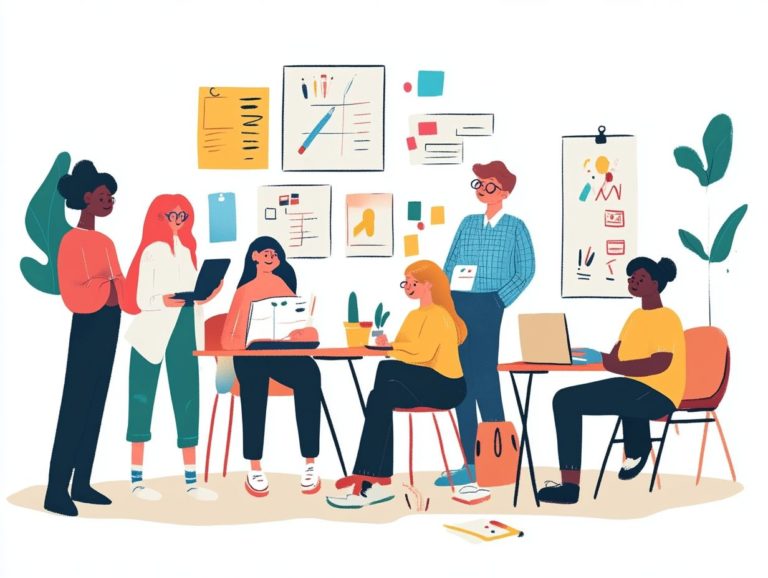The Importance of Cultural Competence in Skill Enhancement
Cultural competence is not merely a buzzword; it is an essential skill that enhances effective communication, collaboration, and empathy in today s diverse landscape.
As you navigate various cultural contexts, understanding and appreciating differences can significantly enrich your professional and personal interactions.
Join us as we explore the exciting world of cultural competence and its profound impact! This article delves into the definition and significance of cultural competence, highlighting its role in skill enhancement and offering practical strategies for development.
You will also discover common challenges and learn how to evaluate cultural competence effectively.
Embark on this journey with us as we uncover the transformative power of cultural understanding.
Contents
- Key Takeaways:
- Understanding Cultural Competence
- The Impact of Cultural Competence on Skill Enhancement
- Strategies for Culturally Competent Skill Enhancement
- Challenges and Solutions for Developing Cultural Competence
- Measuring and Evaluating Cultural Competence
- Frequently Asked Questions
- What is cultural competence and why is it important in skill enhancement?
- How does cultural competence enhance skills?
- What are the benefits of incorporating cultural competence in skill enhancement programs?
- Can cultural competence be learned and developed?
- How can lack of cultural competence hinder skill enhancement?
- What is the role of cultural humility in skill enhancement?
Key Takeaways:
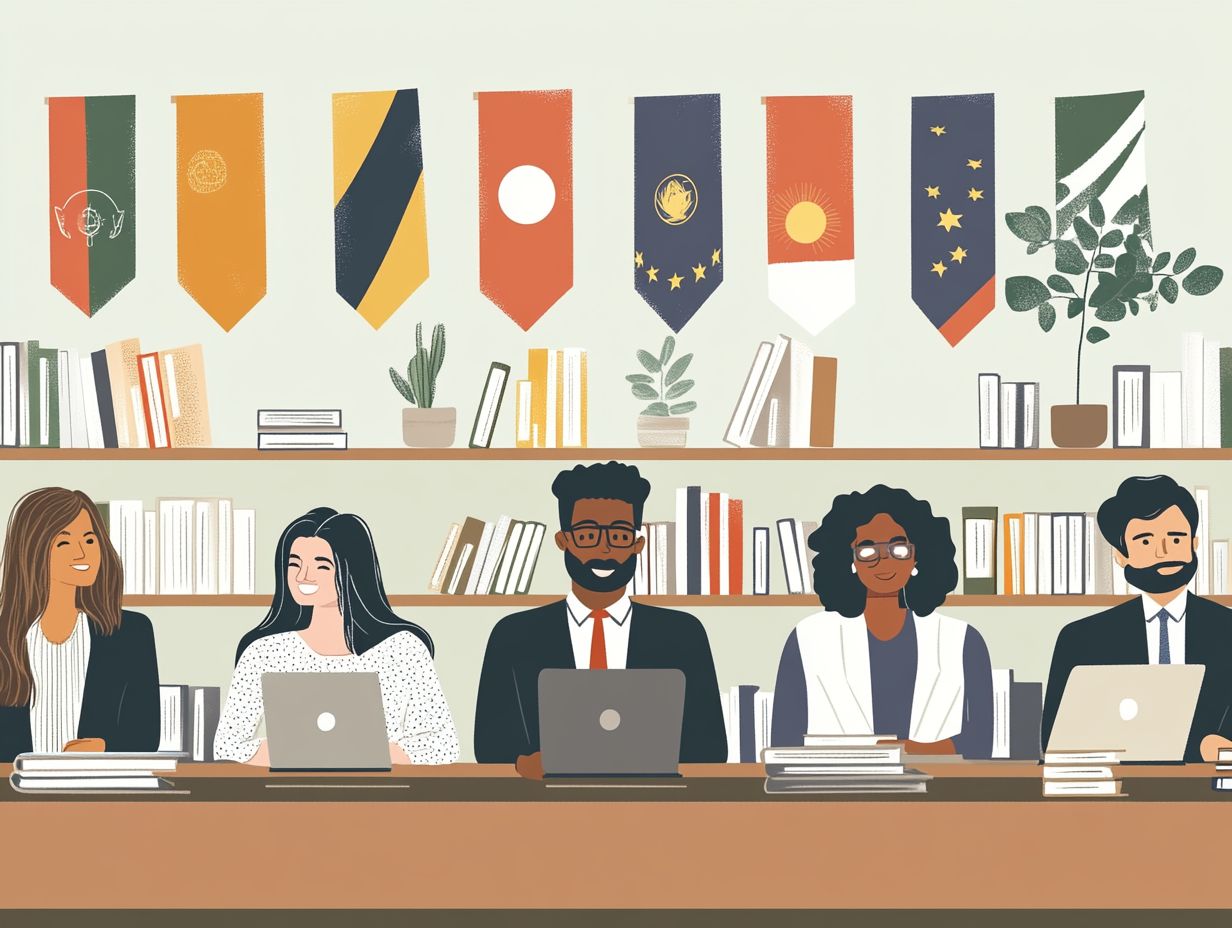
- Cultural competence is crucial for enhancing skills as it promotes effective communication and understanding.
- Educational and exposure strategies can help develop cultural competence and bridge cultural differences and conflicts.
- Measuring and evaluating cultural competence can aid in identifying areas for improvement and enhancing overall skill enhancement efforts.
Understanding Cultural Competence
Understanding cultural competence is essential in today s interconnected world, where globalization and diversity present both challenges and opportunities for individuals and organizations alike.
Cultural competence encompasses your ability to effectively engage with people from various cultural backgrounds. This makes it vital for fostering inclusivity and enhancing professional relationships.
In an increasingly multicultural society, honing your cultural competence sharpens your interpersonal skills and significantly boosts overall business productivity. It also promotes social mobility.
Definition and Importance
Cultural competence is your key to understanding, appreciating, and engaging effectively with individuals from diverse backgrounds. This ability is essential for fostering effective communication and cultural respect across various domains.
In today’s globalized world, interactions among diverse groups are not merely common but vital. Cultural competence goes beyond simple tolerance; it cultivates deeper connections and mutual respect.
The importance of this skill becomes clear as globalization unites individuals with a rich tapestry of backgrounds, perspectives, and traditions. By enhancing empathy and understanding, cultural competence opens the door to meaningful conversations and stronger relationships.
In the business realm, embracing cultural competence can boost productivity. Teams harness diverse ideas and approaches to problem-solving. Educational institutions also benefit from fostering inclusive environments that celebrate diversity, ultimately preparing students for a multicultural world.
The Impact of Cultural Competence on Skill Enhancement
The impact of cultural competence on skill enhancement is truly significant. It fosters deeper cultural awareness and enriches your skill set as you navigate today s intricate social landscapes.
Enhancing Communication and Collaboration
Enhancing communication and collaboration is a vital benefit of cultivating cultural competence. It encourages effective dialogue and nurtures positive cultural interactions within diverse teams.
By grasping the unique cultural perspectives that each team member brings, you can foster a collaborative environment where everyone feels valued and heard. When a team made up of individuals from various backgrounds engages in open discussions about their traditions and communication styles, misunderstandings become a thing of the past.
Successful organizations often prioritize training sessions that emphasize the importance of active listening and empathy. A project in one multinational company focused on incorporating culturally responsive techniques resulted in a remarkable boost in team morale and productivity, demonstrating that cultural understanding is indeed a powerful catalyst for effective collaboration.
Start cultivating your cultural competence today and unlock new opportunities in your personal and professional life!
Developing Empathy and Understanding
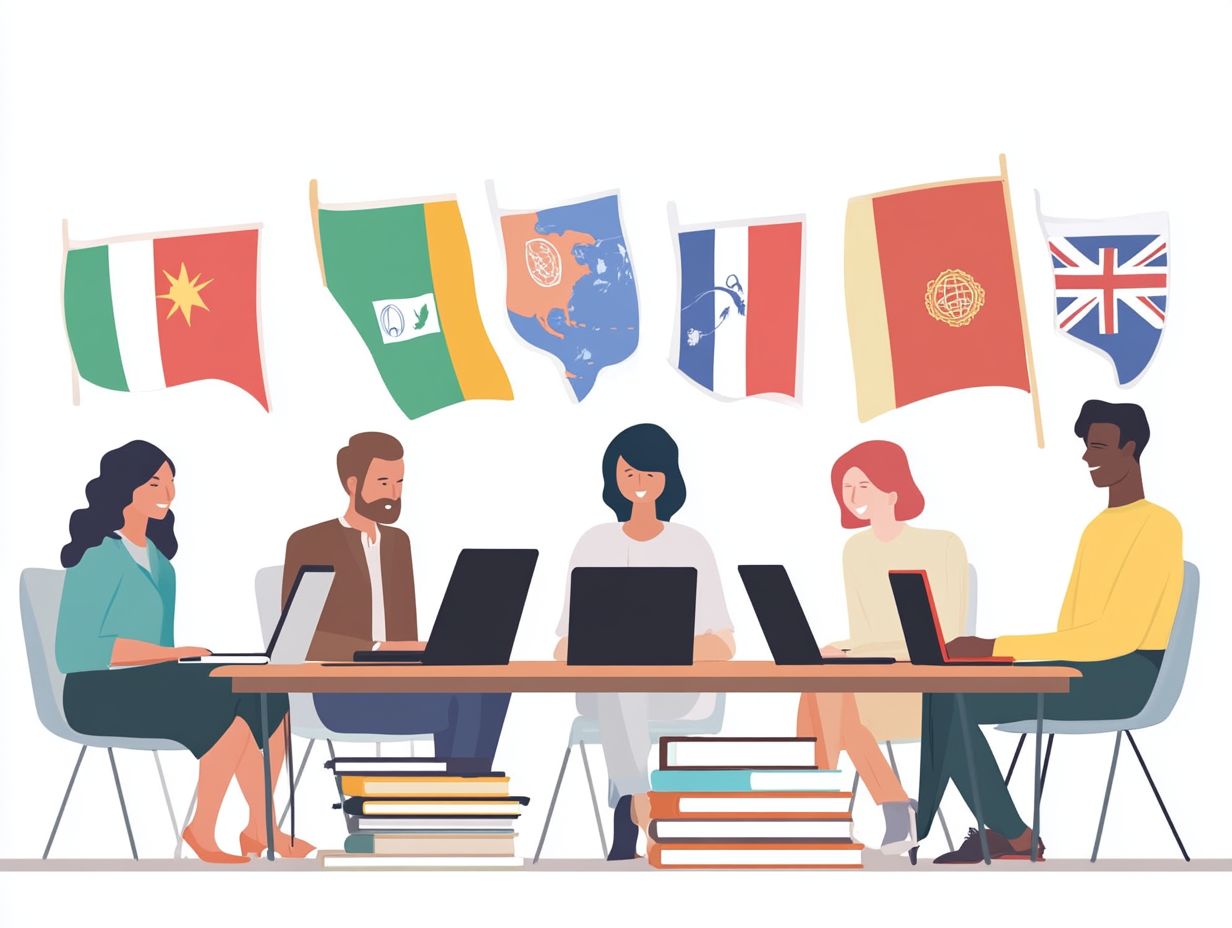
Developing empathy and understanding is crucial for achieving cultural competence. It gives you the power to appreciate the diverse values and perspectives that different cultures bring. This helps you navigate complex cultural dynamics with ease.
Empathy acts as a bridge, allowing you to connect with others on a deeper level. This goes beyond mere tolerance of differences; it fosters genuine relationships that enrich your interactions. By actively listening and showing respect for diverse viewpoints, you can refine your interpersonal skills, resulting in more meaningful exchanges.
To enhance your cultural intelligence, consider engaging in self-reflection, seeking out varied experiences, and participating in workshops that focus on cultural awareness. Utilizing strategies like open-ended questioning and maintaining curiosity about others’ backgrounds can illuminate cultural nuances. This creates a more inclusive environment where everyone feels valued and understood.
Strategies for Culturally Competent Skill Enhancement
Implementing effective strategies for enhancing culturally competent skills requires you to cultivate these abilities through targeted education and training. It s essential to expose yourself to diverse perspectives. This not only broadens your understanding but also deepens your appreciation for different cultural contexts.
Education and Training
Education and training play a pivotal role in developing your cultural competence. They equip you with the knowledge and skills needed to navigate multicultural contexts with ease.
With thoughtfully designed curricula, educational programs can weave in diverse perspectives. This encourages you to appreciate and empathize with cultures that differ from your own. Professional development initiatives provide ongoing opportunities to deepen your understanding of cultural dynamics. This ensures you remain skilled in addressing the complexities of our globalized society.
These approaches heighten your awareness and foster collaboration among individuals from various backgrounds. Ultimately, they enrich community interactions and enhance interpersonal relationships. By prioritizing formal education in this way, you contribute to creating harmonious environments that respect and celebrate diversity.
Exposure to Diverse Perspectives
Exposure to diverse perspectives is essential for deepening your appreciation of culture and nurturing meaningful relationships across different backgrounds.
By engaging with various communities, you immerse yourself in cultural dynamics that challenge your preconceived notions. This expands your worldview. For instance, when you participate in local festivals that celebrate different heritages, you experience firsthand the richness of unique traditions, languages, and cuisines.
When you volunteer with multicultural organizations, you not only make a positive impact but also connect with diverse individuals. This sparks rich dialogues that boost your cultural competence.
These experiences promote empathy and encourage you to appreciate the intricacies of diverse cultural narratives. Ultimately, this leads to more enriched interpersonal relationships.
Challenges and Solutions for Developing Cultural Competence
Identifying cultural challenges and implementing effective solutions are crucial steps in developing cultural competence. By overcoming bias and addressing cultural assumptions, you pave the way for creating more inclusive environments.
This proactive approach boosts understanding and fosters a richer, more collaborative atmosphere for everyone involved.
Overcoming Bias and Stereotypes
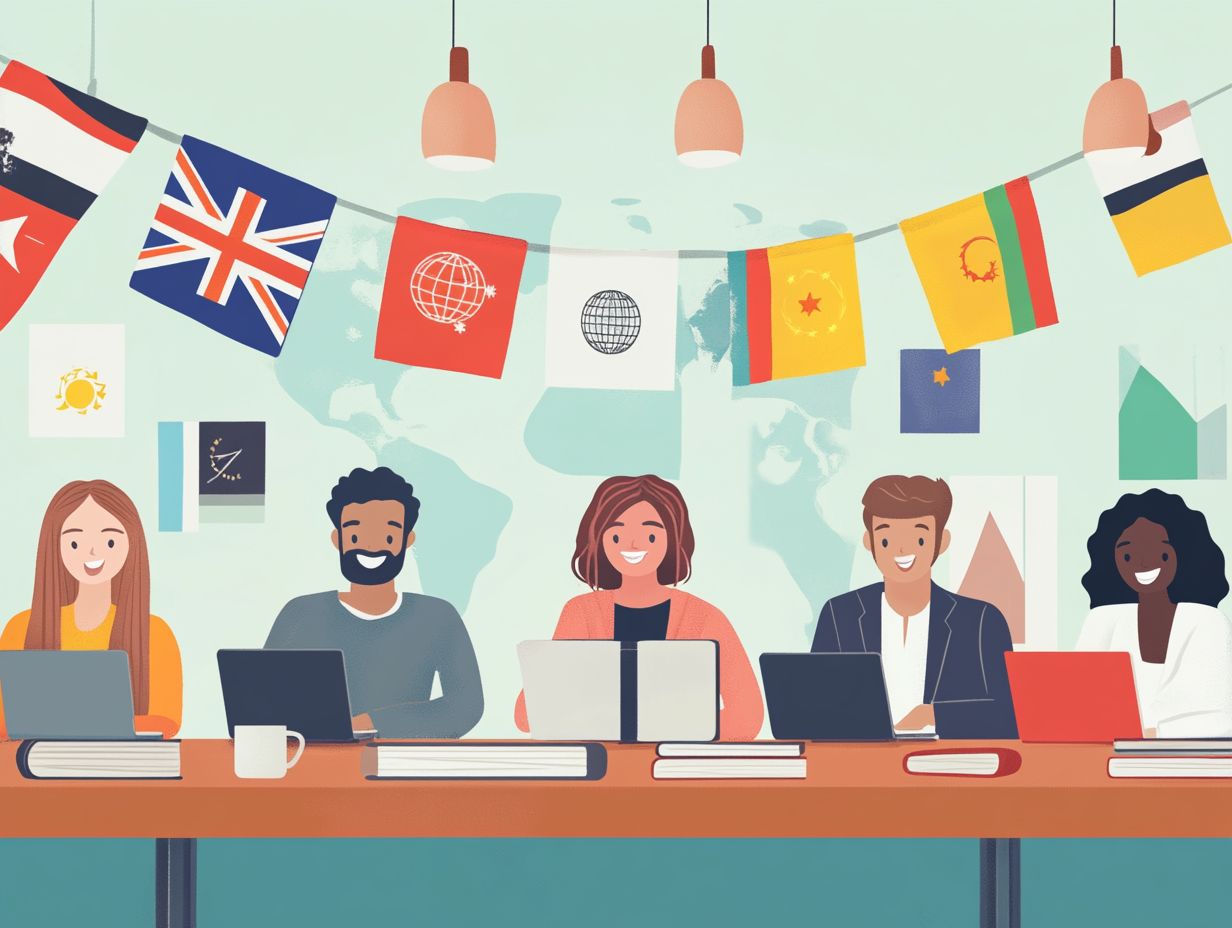
Overcoming bias and stereotypes is essential for achieving cultural competence. It nurtures cultural sensitivity and enhances effective communication among diverse groups.
The subtleties of cultural biases can significantly impact interpersonal relationships, often leading to misunderstandings and tensions. It s easy to unintentionally project stereotypes, creating barriers to authentic connection.
By prioritizing education and awareness, you can learn to recognize and counteract these biases. This ultimately fosters a more inclusive environment. Participating in diversity training and engaging in cultural exchanges helps dismantle preconceived notions, inviting a richer appreciation for different perspectives.
This journey toward cultural sensitivity enhances personal interactions and enriches communities. It paves the way for more harmonious coexistence among various cultural backgrounds.
Addressing Cultural Differences and Conflicts
Addressing cultural differences and conflicts is crucial for creating a harmonious environment. It underscores the importance of cultural respect and understanding in resolving disputes.
This means recognizing the diverse backgrounds and perspectives that individuals bring to the table. Actively engaging in dialogue fosters inclusivity. For instance, a multinational corporation found success through regular cultural competence workshops. These workshops boosted collaboration among employees from various regions. Participants shared their experiences and customs, broadening everyone s understanding and cultivating a genuine sense of belonging.
Such initiatives demonstrate the power of open communication. They allow teams to navigate misunderstandings and develop strategies that honor each person s cultural identity. Ultimately, this approach leads to more effective conflict resolution and a more cohesive work environment.
Measuring and Evaluating Cultural Competence
Measuring and evaluating cultural competence is essential for assessing the impact of efforts to improve cultural understanding. This process ensures that you, whether as an individual or part of an organization, can confidently navigate diverse environments.
Assessment Tools and Methods
Assessment tools and methods for evaluating cultural competence can be diverse. They include:
- Self-assessments
- Peer feedback
- Formal evaluations
Each of these plays a crucial role in enhancing your cultural engagement.
These tools empower you to reflect on your own biases, gain valuable insights from colleagues, and receive structured feedback on your cultural interactions. Self-assessments encourage deep reflection on your values and assumptions, fostering personal growth. Peer feedback invites different perspectives, helping uncover any blind spots you might not have noticed.
Formal evaluations provide a standardized framework for assessing your competencies. However, relying solely on these methods can sometimes overlook the nuanced experiences that shape your understanding, potentially leading to superficial insights.
Use these assessments to pinpoint your growth areas. They are invaluable resources for shaping your professional development initiatives. They guide you in identifying areas for growth and promote ongoing learning in diverse settings. Start your journey toward continuous improvement in diverse settings now!
Frequently Asked Questions
What is cultural competence and why is it important in skill enhancement?
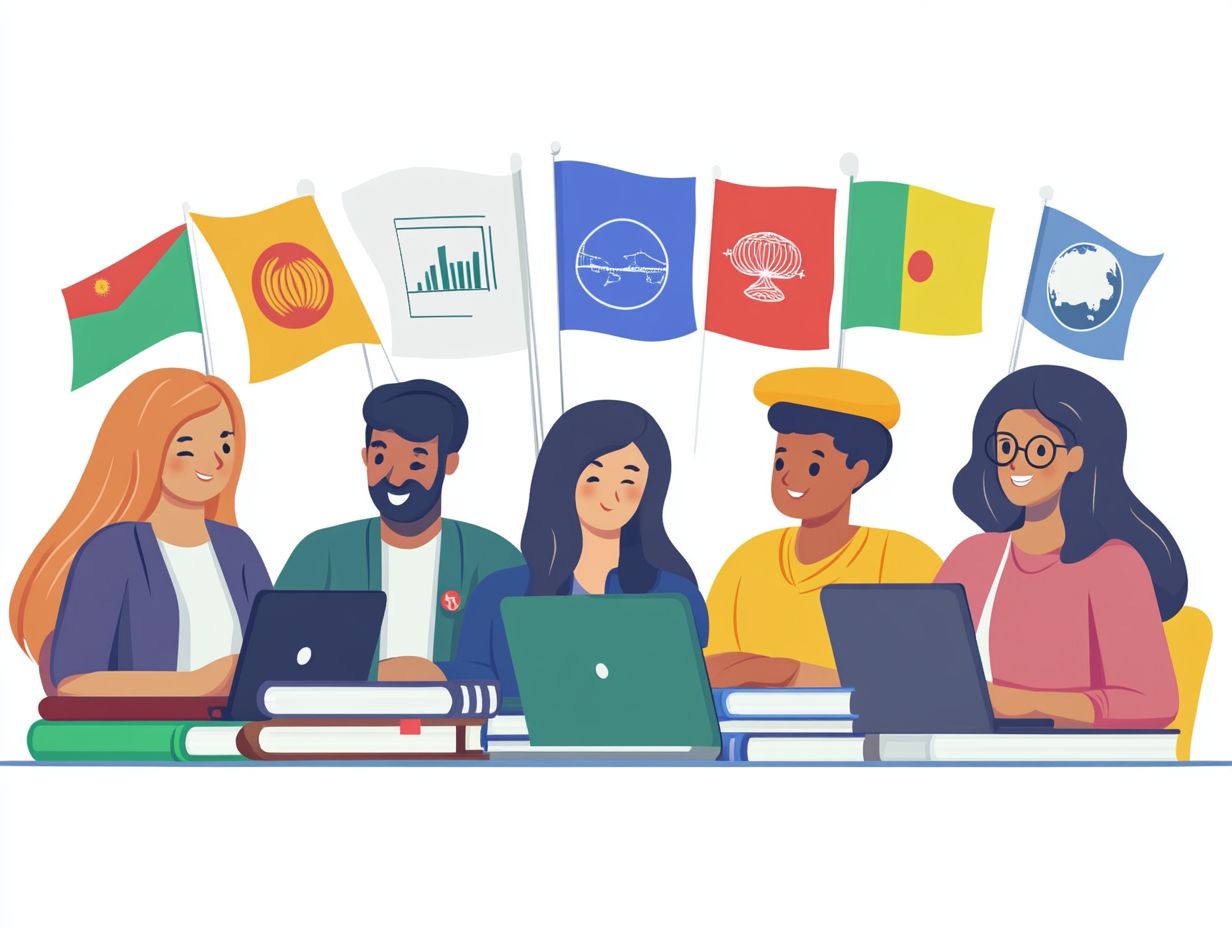
Cultural competence means understanding, communicating with, and interacting effectively with people from different cultures. In our diverse world, this skill is crucial for success.
How does cultural competence enhance skills?
It promotes open-mindedness and adaptability. By learning about different cultures, people can improve their problem-solving and decision-making abilities.
What are the benefits of incorporating cultural competence in skill enhancement programs?
Including cultural competence in training creates a more inclusive environment. This leads to better teamwork and sparks creativity.
Can cultural competence be learned and developed?
Absolutely! Cultural competence can be developed through training, experiences, and self-reflection. It requires a willingness to learn and respect diverse cultures.
How can lack of cultural competence hinder skill enhancement?
A lack of cultural competence limits effective communication with people from different backgrounds. This can cause misunderstandings, conflicts, and missed opportunities.
What is the role of cultural humility in skill enhancement?
Cultural humility involves recognizing and questioning our own biases. This approach helps us grow in our interactions with others and fosters respectful communication.





